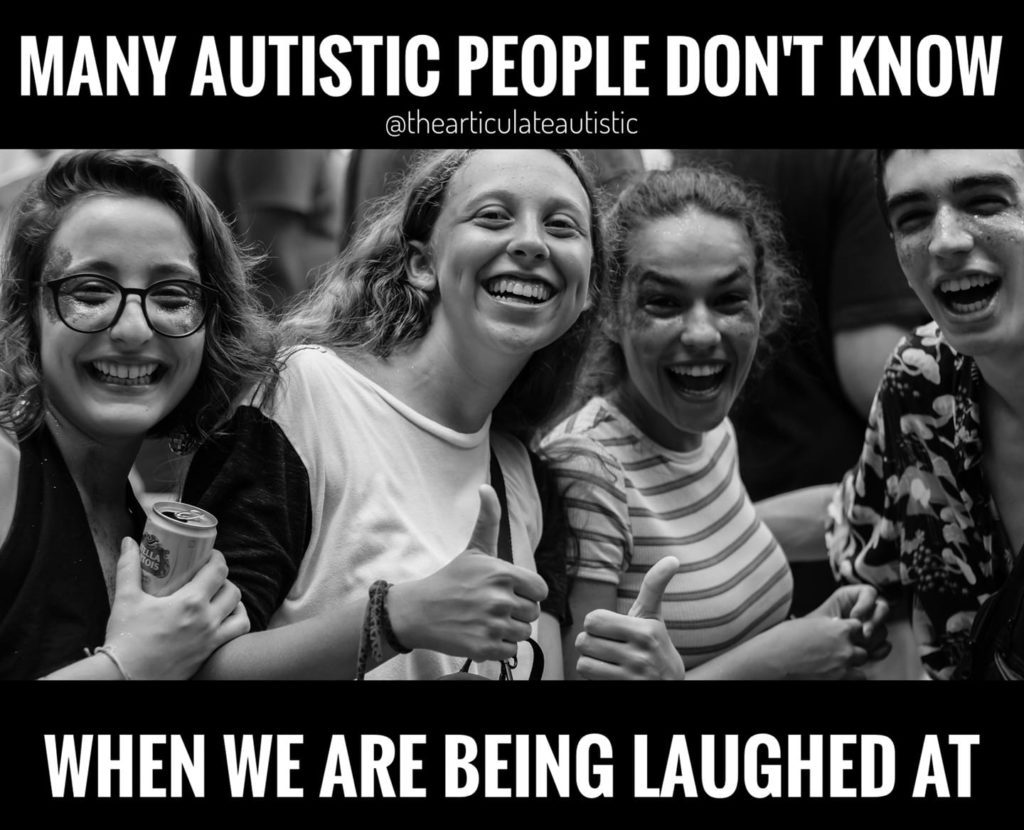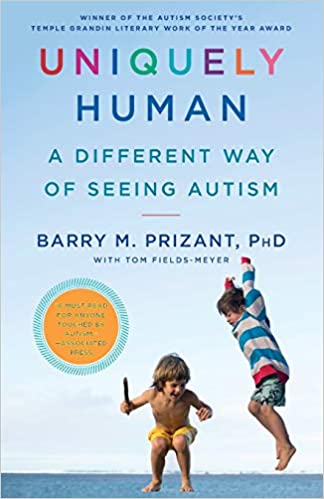Most Autistic People Don’t Know When We Are Being Laughed At

“He was obviously picking on me! Why didn’t you defend me?”
Huh??
Certain arguments with an especially abusive ex stand out in my mind, and this is definitely one of the big ones.
Apparently, my ex’s brother made an offhand and inappropriate remark to her while I was standing right next to her, and, me being me, I didn’t stand up for her because I had absolutely no clue he was picking on her.
Never heard the end of that.
The thing is, myself and many autistic and otherwise neurodivergent people aren’t aware we are being picked on, laughed at, excluded, and the like because subtle communication goes right over our heads.
Now, if someone walked right up to me and called me an a**hole, I would know I was being insulted, but if someone makes a comment in a certain tone or looks at me a certain way, the odds are pretty slim that I’ll pick up on it.
So, needless to say, if I don’t even know when I’M being laughed at or picked on, odds are, I certainly won’t be aware of it when it’s happening to others.
(However, I am a little better at figuring it out online because I can read, trace back, and make connections.)
Not realizing you’re being insulted is not only embarrassing, it can be very dangerous.
(Article continues below.)
The best way to improve communication with your autistic loved one is to understand how your autistic loved one’s mind works! Intentions, motivations, and personal expressions (facial expressions or lack thereof, body language, etc.), are often quite different in autistic people than they are in neurotypical people.
Experience a better understanding of your autistic loved one by reading books about life from an autistic perspective as well as stories that feature autistic characters. You’ll have so many “Ah ha!” moments and start seeing your autistic loved one in a different light (and you’ll have a better understanding of their behaviors, which you may have been misinterpreting up until now).
Books I recommend for a better understanding of your autistic loved one:
By and large, non-autistic people will hint at their dislike of someone by subtlety excluding them, picking on them, making cutting remarks with double meanings, and “giving looks” that other non-autistic people pick up on and respond to accordingly.
Unfortunately, autistic people usually do not pick up on these things, and this lack of being able to read these cues causes those who don’t like us to think we are willfully ignoring their warning signs to get out of their territory, and they become even MORE aggressive in their tactics.
This can lead to physical abuse as the non-autistic person gets angrier and feels more threatened.
Like I’ve said in previous posts, your last straw is often our first clue that anything is wrong. We haven’t been ignoring you this whole time, we just can’t understand your neurological language.
This is where yelling, screaming, and physical attacks seem to “come out of nowhere” for autistic people, but when an intermediary gets involved, the two neurotypes can tell entirely different versions of the same story, and both of them will technically be right!
Follow me on Instagram.
Want downloadable, PDF-format copies of these blog posts to print and use with your loved ones or small class? Click here to become a Patreon supporter!







